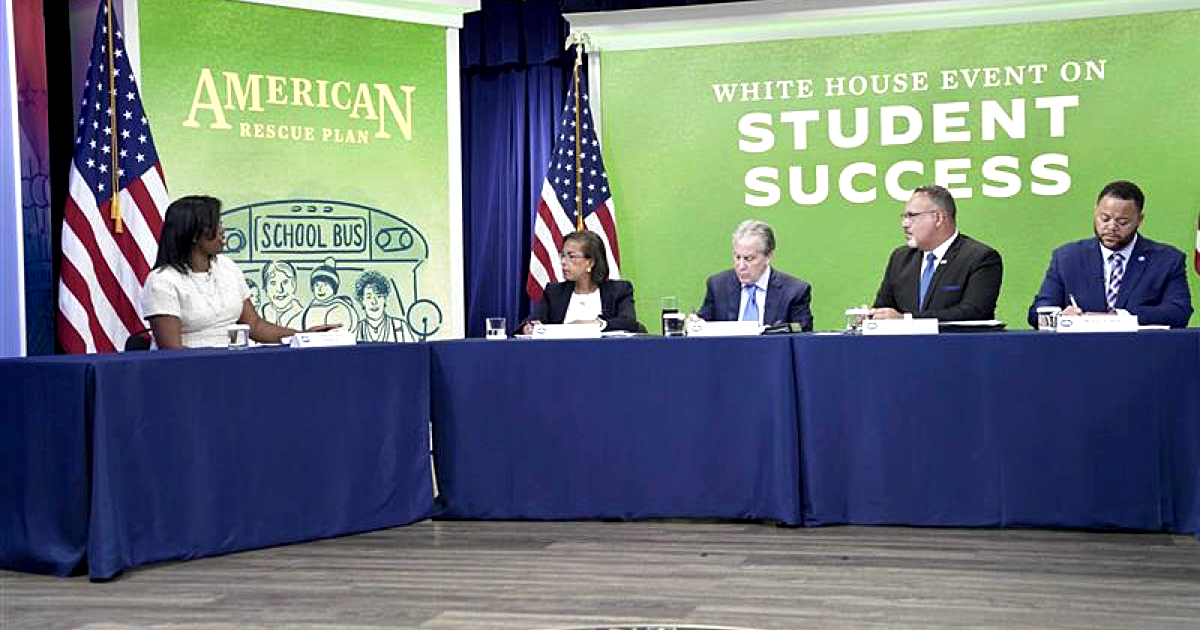
Jul 5, 2022 6:33:31 PM
Today, the White House announced the launch of the National Partnership for Student Success, a three-year, public-private partnership that will recruit and place 250,000 Americans in schools as tutors, mentors, service coordinators and success coaches for students in PreK through high school.
News: The @WhiteHouse has announced the National Partnership for Student Success (NPSS) between ED, @AmeriCorps, @JHU_EGC, and state & local partners: https://t.co/XrLzHquzFH
— U.S. Department of Education (@usedgov) July 5, 2022
Here's how the NPSS will help students recover from the impacts of the COVID-19 pandemic: [ 🧵 ⬇️ ] pic.twitter.com/fEf5pt7Ojk
It’s about time.
After two years of pandemic-related school disruption, the 2021-22 school year was supposed to be “the comeback” year for public school children. But the year had more bumps than expected, especially when the Omicron wave of COVID-19 hit. Children’s mental health—undertreated before the pandemic started—has taken a hard hit, and has yet to recover.
Mounting stress on teachers has yet to show up in skyrocketing attrition rates, but some experts are becoming increasingly concerned that a teacher-specific Great Resignation could be coming down the road.
“There was such high hope this year, not only for back-to-normal, but back-to-better, and many educators and students reported it was still a very challenging year,” said Robert Balfanz, director of the Everyone Graduates Center at Johns Hopkins University, which will serve as the hub for the new partnership. Already, 75 education and youth-serving organizations are on board, with more to come.
Americorps will lead the work of recruiting the 250,000 additional adults in schools and is investing $20 million in the effort to recruit, train and manage them. These new recruits will serve as tutors, mentors and success coaches for students needing additional help to stay on track through middle and high school. “We know this will lead to a stronger pipeline of educators,” because many of these volunteers are likely to choose to stay on in education, said Americorps CEO Michael Smith.
With today’s launch, the White House and Education Secretary Miguel Cardona sent a clear message to states and districts: get focused. Cardona said,
To help kids recover from school closures, it’s time to focus on high-quality, high-dose tutoring, mentoring, and advising related to life, especially life after high school. They handed education leaders a roadmap and a set of technical assistance partners to develop tutoring, mentoring, and other forms of support for students.
Meanwhile, parents and the public are more in the dark than we should be about how states, districts and schools are really spending their pandemic relief funds. While an analysis from Future Ed shows districts’ spending plans seem reasonable, Marguerite Roza of Edunomics warns that actual spending is hard to track and may deviate considerably from the plans local leaders sent to the feds.
Today, the feds also promised new tools coming soon for parents and the public to see how money is being spent, in the hope they will hold their local leaders accountable for results.
Domestic policy director Susan Rice laid out the message to districts: fully staff your schools and provide high-quality tutoring, mentoring, and afterschool programs to help kids get back on track both academically and emotionally. “For districts who haven’t been, now is the time to start,” Rice said.
One of the districts putting pandemic funds to wise use is Baltimore, where CEO Sonja Santelises has partnered with her mayor’s youth employment program to ensure high school students can take classes and also work a summer job. This summer, she said,
She also cited the work of Baltimore’s Hartford Heights Elementary, where nearly 200 students have chosen to come for an enriching summer school. Mentoring is also built-in. At Hartford Heights, “There’s a real focus on ensuring every young person has a caring relationship with an adult that is part of that community.”
Maureen Kelleher is Editorial Director at Future Ed. She was formerly Editorial Partner at Ed Post and is a veteran education reporter, a former high school English teacher, and also the proud mom of an elementary student in Chicago Public Schools. Her work has been published across the education world, from Education Week to the Center for American Progress. Between 1998 and 2006 she was an associate editor at Catalyst Chicago, the go-to magazine covering Chicago’s public schools. There, her reporting won awards from the Annie E. Casey Foundation, the International Reading Association and the Society for Professional Journalists.
Few issues in education spark more tension and debate than standardized testing. Are they a tool for equity or a burden on students? A necessary check on school systems or a flawed measure of...
Charter schools are public schools with a purpose. Operating independently from traditional school districts, they're tuition-free, open to all students, and publicly funded—but with more flexibility...
Despite the benefits of a diverse teaching force, prospective teachers of color fall out of our leaky preparation pipeline at every stage: preparation, hiring, induction, and retention. Here’s what...
Ed Post is the flagship website platform of brightbeam, a 501(c3) network of education activists and influencers demanding a better education and a brighter future for every child.
© 2020-2025 brightbeam. All rights reserved.
Leave a Comment